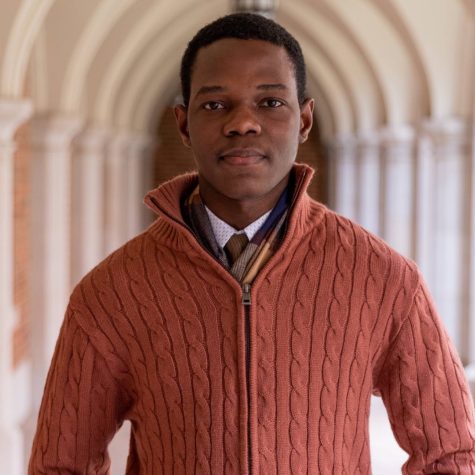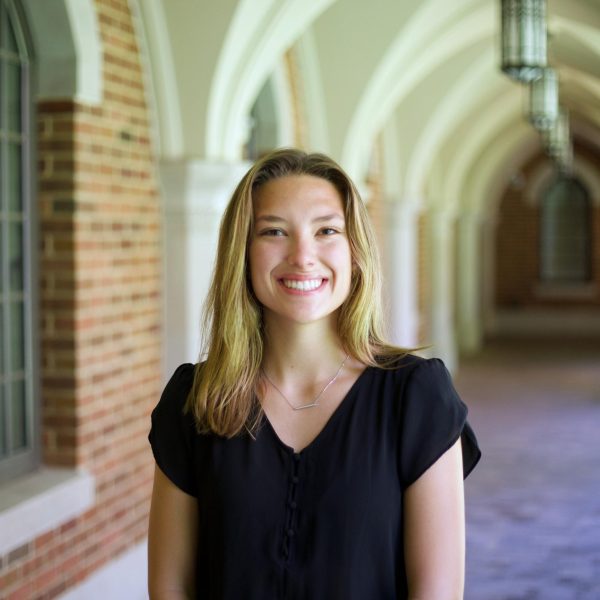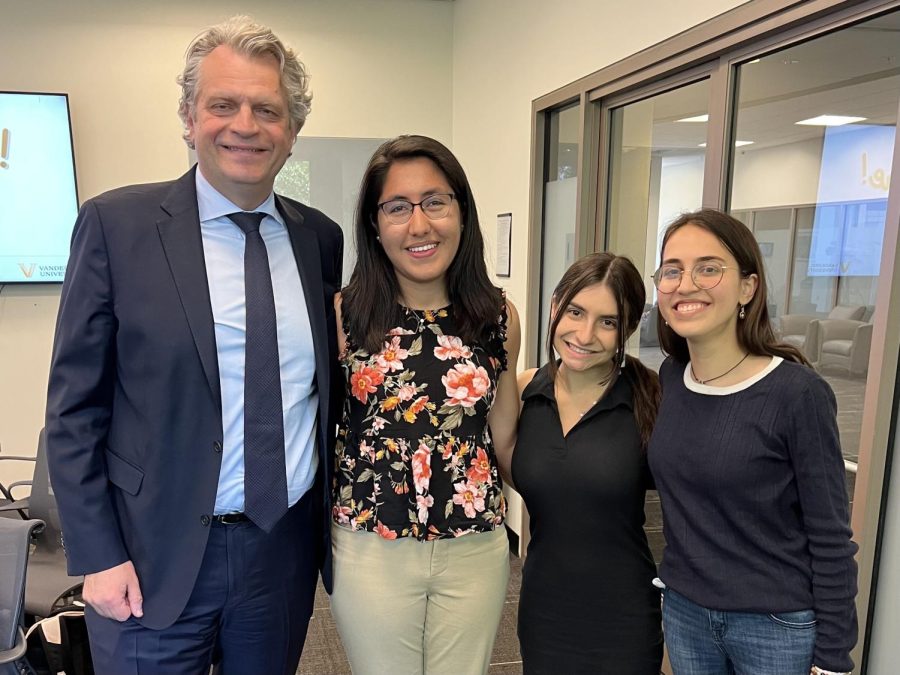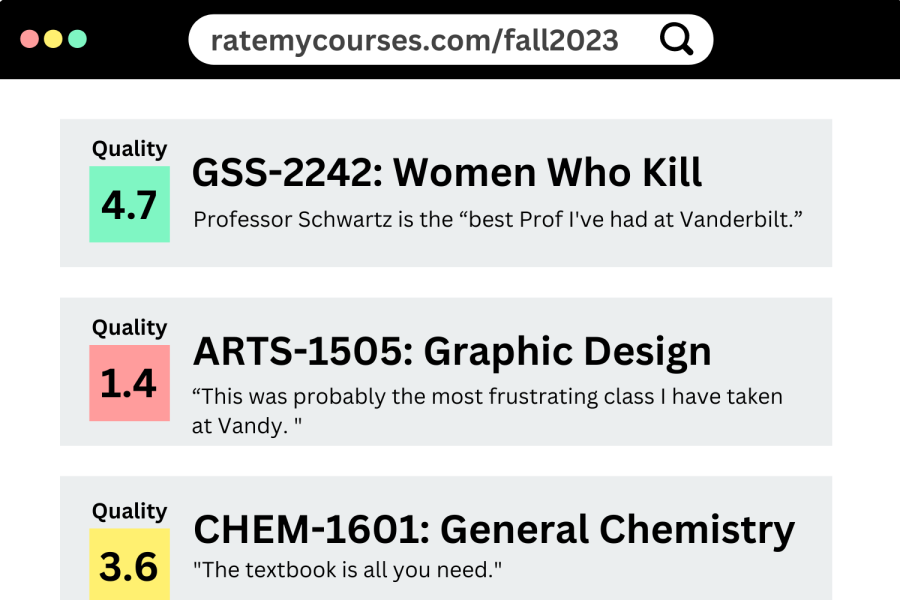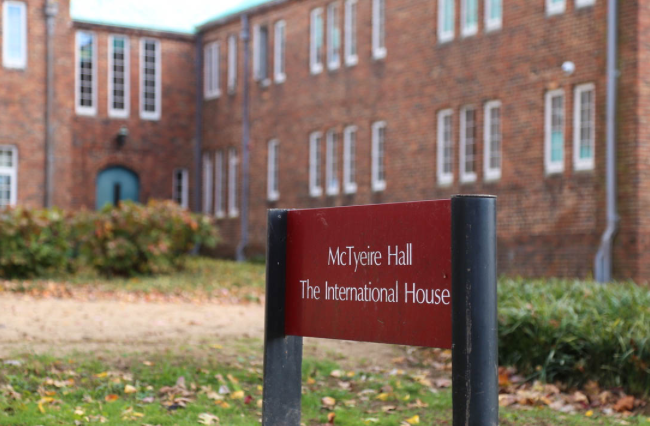The Department of Spanish and Portuguese will offer a new Spanish for the Professions minor starting in the Fall 2023 semester. This 18-credit hour minor differs from the traditional Spanish minor by emphasizing conversation and professional courses rather than Spanish literature courses.
In an information session hosted about the minor on March 27, Spanish and Portuguese Studies Department Chair Andrés Zamora and Director of Undergraduate Studies for Spanish and Portuguese María Paz Pintané presented the new curriculum.
“The minor in Spanish for the Professions responds to the needs of our students as global citizens in the 21st century to gain in-depth perspectives and knowledge of language and culture as they navigate and develop professionally in the challenges of an increasingly competitive global economy,” their presentation reads.
The minor requires three core courses — which build basic language skills, two professional courses — which focus on courses related to health, business, law and other professional fields — and one elective course. New classes being launched in Fall 2023 that qualify toward the minor include “Introduction for Spanish to the Professions,” “Current and Contemporary Issues” and special topic courses that change every semester. “Sports, Media & Society” and “Mercado de Maravillas: Foods of Spain and Hispanic America in Today’s Global Marketplace,” will be offered as special topics courses in Fall 2023 and Spring 2024, respectively.
The program also offers opportunities to fulfill requirements through internships in Hispanophone countries, approved Maymesters and study abroad courses and immersive experiences in fields such as business, education, sports, medicine and law. Specifically, the minor includes a variety of optional new internship opportunities that count for credit toward the minor, including public health internships in rural or urban areas of Argentina, the Dominican Republic and Chile, and business, engineering and management internships in Spain.
“We have to think of when students graduate from Vanderbilt, they have to be competitive,” Pintané said. “Being able to communicate and speak a second language in this country will make a difference in their lives. If you’re a doctor, lawyer, business person or primary school teacher, you will have to be able to communicate.”
Sophomore Steven Bacuilima Chavez said that the purpose of the new minor piqued his interest.
“I appreciate that the Spanish department has decided to establish a new minor as it shows Vanderbilt’s commitment to providing students with innovative and relevant educational opportunities,” Bacuilima Chavez said. “Something that stood out to me was the possibility of doing an internship that enables students to immerse in the language but also different fields.”
Sophomore Niklas Cooper said the minor’s blend of classroom instruction and real-world application is relevant to his career aspirations.
“The minor is an opportunity to gain the Spanish vocabulary, immersion and experience outside of the classroom needed to prepare students for the workforce,” Cooper said. “It will allow students to practice interpersonal communication, gain confidence in the wild and familiarize themselves with the socio-cultural aspect of the language.”
Other recent changes in the university’s academic curriculum include changes in the human and organizational development curriculum, changes to the communication studies curriculum, plans to revamp the AXLE’s curriculum and a new Asian American and Asian Diaspora Studies major and minor.
The Department of Spanish and Portuguese has been teaching professional courses for over 20 years. According to Pintané, the university was one of the first institutions to pioneer Spanish courses with topics focused on the professions. This minor was first pitched to the department in 2018 by then-Department Chair Benigno Trigo but was delayed due to the challenges of the COVID-19 pandemic. Pintané reintroduced the idea of the minor in 2022, drawing inspiration from a similar minor at other universities such as Johns Hopkins, UNC and Purdue. Through the program, the Spanish and Portuguese Studies department has been aiming to provide students with an understanding of the cultural and linguistic nuances of Spanish-speaking communities in professional contexts.
Students that have completed Spanish 2202 or 2204 or scored 460 or higher on the departmental placement test are eligible to enroll in the minor’s core courses for the fall. “It’s not just learning grammar. We want you to be able to produce content and meaningfully communicate professionally,” Pintané said. “When someone is sick, they usually speak in their first language. If you are a doctor and you can communicate with the patient in their first language, that is a point to you. They feel safe.”





